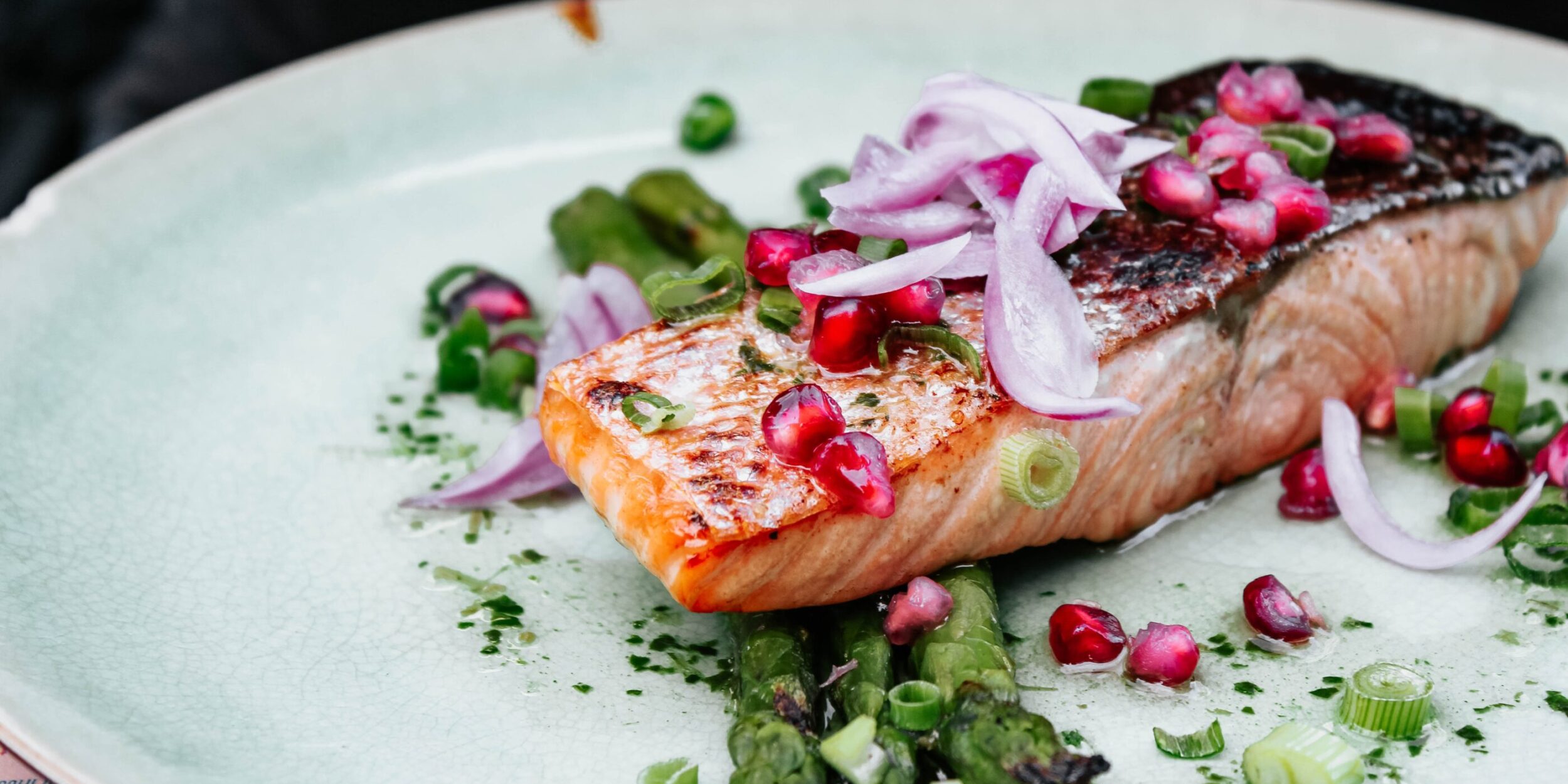Does Trout Taste Like Salmon? A Detailed Comparison of Flavor Texture. and Culinary Uses
Salmon and trout are two of the most popular fish eaten around the world. With their pinkish-hued flesh and rich, fatty texture, it’s easy to think these two fish taste the same. But there are some notable differences between trout and salmon when it comes to flavor, texture, color, and best cooking methods.
In this article, we’ll explore the question: does trout taste like salmon? Read on to find out how to tell these two fish apart, and learn which one is better suited for your recipe ideas.
Trout and Salmon Come From Different Fish Families
While salmon and trout may look visually similar, they actually come from two different genera of fish. Salmon are part of the Salmonidae family, which also includes char, grayling, whitefish, ciscos, and lenok. Trout belong to the Salmoninae subfamily, making them close relatives of salmon but not quite the same.
Rainbow trout, brown trout, and cutthroat trout are the most common varieties eaten. Atlantic salmon and king salmon are two of the most popular types of salmon. So while related, they have distinct genetic differences that affect their flavor.
The Flavor of Trout is Mild, While Salmon is Rich
The most noticeable difference between trout and salmon is the intensity of their flavors. Trout has a very delicate, mild taste. Some describe it as slightly nutty or even meaty. The flesh is not too dense or flaky when cooked properly. Trout provides a neutral canvas that allows other ingredients and seasonings to shine.
In contrast, salmon is rich, fatty, and robust in flavor. The high oil content gives it a smooth, buttery mouthfeel. Salmon tastes distinctly fishy, while trout does not have that strong fish flavor. The color of salmon flesh is also a deeper orange hue compared to the pale pink flesh of trout.
Cooking Methods Differ Based on Oil Content
Trout cooks up light and flaky, while salmon remains moist thanks to its high fat content. That’s why basic preparation like baking, broiling, grilling, and pan frying all work well for salmon. The extra fat helps prevent it from drying out.
Trout has less natural oil, so it can become tough if overcooked. Moist-heat methods like poaching, pan frying, or baking gently in foil are best. Extra moisture helps keep trout tender.
Seasoning Choices Should Enhance Inherent Flavors
To highlight its neutral taste, trout pairs well with lemon, dill, capers, almonds, and parsley. Butter or olive oil, salt, and pepper are often enough to make basic pan-fried trout taste fantastic. Acidic ingredients like lemon bring out trout’s sweetness.
Salmon’s robust flavor stands up well to stronger seasonings. Rosemary, thyme, garlic, soy sauce, sesame oil, and teriyaki are all excellent complements. Salmon also pairs well with fruits like mango, pineapple, and peach to offset its richness.
Both Fish are Wild Caught or Farm Raised
You can purchase wild caught or farm raised salmon and trout. In general, wild caught fish have a stronger, more complex flavor. Those who want a pronounced “fishy” taste prefer wild caught. Farm raised fish have a milder taste since their diet is controlled.
No matter which you choose, always look for sustainably caught fish with a responsible sourcing certification. Overfishing of wild stocks remains an issue, so make sure your fish comes from well-managed fisheries.
Nutritional Value is Similar, But Fat Content Varies
Salmon and trout are both nutritious fish loaded with protein, healthy fats, vitamins, and minerals. Per 3.5 ounce serving, salmon contains about 200 calories and 17 grams of fat, while trout has 140 calories and 5 grams of fat.
So salmon has more total fat and calories for the same serving size. The extra omega-3s in salmon provide valuable health benefits, but the lower fat content makes trout a smart choice for those limiting fat intake.
In the End, It’s a Matter of Personal Preference!
When it comes down to it, whether you prefer rich, fatty salmon or mild, delicate trout is a matter of personal taste. Salmon works well for those who enjoy strong fish flavor, while trout is better for people who want something more neutral tasting.
The cooking method, seasoning choices, and accompaniments can also influence the final flavor. Although salmon and trout share some similarities, their distinct differences give seafood lovers more options to enjoy.
So next time you’re grocery shopping or ordering fish at a restaurant, think about which texture and taste you’re craving. Let your preferences, not just appearances, guide you toward salmon or trout for your meal!

CertificationJoin the most recognised certification programme as proof of your responsible farming practices to a global audience.

CertificationJoin the most recognised certification programme and benefit from trading ASC certified seafood.


Salmon is one of the most in-demand fish in the world; it’s delicious, works well in all kinds of dishes and cuisines, and has brilliant health benefits. No wonder it has so many fans! Trout – salmon’s close cousin – is perhaps lesser known but is no less flexible or tasty. In this blog we’re diving into the key differences between the two, and the benefits of trout vs salmon for seafood lovers.
Pacific Seafood’s Steelhead vs King Salmon taste test on Everyday Northwest
FAQ
Which tastes better, salmon or trout?
Trout typically has a milder taste than salmon, but they are very similar in all other respects when it comes to their preparation.Sep 27, 2023
Is trout very fishy tasting?
Most of the Trout for sale in North America is Rainbow Trout. The pinkish meat is mild and delicate, and they’re generally the perfect serving size for one per person. Rainbow Trout doesn’t usually taste too “fishy.” It can sometimes have a slight muddy taste, though, depending on where it was raised.
Is trout better for you than salmon?
Rainbow trout is higher in vitamin B12, vitamin D, and vitamin E, yet salmon is higher in selenium, vitamin B6, vitamin B1, vitamin B3, and folate.
Can trout be cooked like salmon?
Yes, trout can be cooked similarly to salmon. In fact, trout is often used as a substitute for salmon in recipes, especially if you prefer a milder flavor.
What does salmon taste like?
Salmon are freshwater fishes, and they have little taste. Salmons tend to pick up the taste of the ingredients used to prepare them. This serves as both a plus point and minus point for the salmon. The positive point is that you will get different flavors based on the ingredients you choose to cook your salmon with.
What does trout taste like?
Trout has a unique, delicate, and slightly sweet taste that varies depending on factors like habitat, diet, and species. The fish’s texture and flavor are influenced by proper cooking methods and seasonings. Trout is a versatile and nutritious addition to a diverse range of dishes and culinary styles.
What is the difference between salmon and trout?
Trout and salmon both belong to the Salmonidae family, but they have distinct flavors. Trout has a milder taste, while salmon usually has a more intense and richer flavor. The texture of trout is more delicate compared to salmon’s firmer meat. Their flavors differ due to their diets and habitats.
How does rainbow trout compare to salmon?
How does rainbow trout compare to salmon in taste? Rainbow trout and salmon are quite similar in taste, as they both have a delicate and moderately flavored flesh. However, the rainbow trout tends to have a milder flavor with a subtle hint of sweetness. Salmon, on the other hand, offers a slightly richer and oilier texture.
How do you know if a salmon is a trout?
1. The maxilla (the bony plate usually found alongside a fish’s mouth) does not extend beyond the ear in a salmon. 2. A salmon’s tail is usually forked, and the thickness of the “wrist” of the tail is slender and narrow. 3. Has a smaller mouth with a sharper snout compared to trout. 4.
What does a bull trout taste like?
Bull Trout (Salvelinus confluentus) is a close relative of the Dolly Varden and is native to the Western United States and Canada. This large, slow-growing fish features a creamy white to olive green body color. Its taste is rich and buttery, with a stronger flavor than most trout species.
